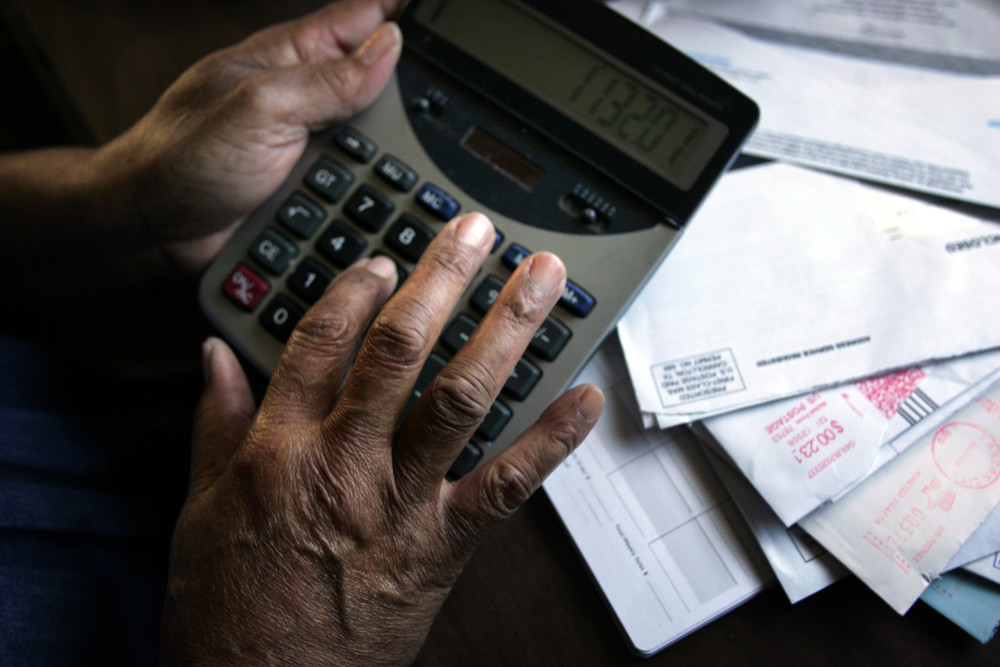By Salwa Shabazz
Philadelphia Daily News
WWR Article Summary (tl;dr) Salwa Shabazz describes how she, like many other people who aren’t making ends meet, are still being counted as working Americans. Working Americans despite being on Medicaid and on Food Stamps.
Philadelphia Daily News
I’ve always enjoyed talking with people, and, as long as I can remember, I wanted to work in the hotel industry. It’s been my dream to work with guests at the front desk to make sure they have the best experience possible.
As an African-American woman, I knew that lucky breaks weren’t going to be handed to me, so I did everything I could to achieve my dreams. I went to school and got my bachelor’s degree in hospitality and hotel management in 2000 from the Indiana University of Pennsylvania.
However, apart from a brief internship after college at the Best Western and a year at the Hilton working at the switchboard, which was almost a decade ago, I haven’t been able to find work in my chosen field, a field in which I have a degree.
I’ve heard people say the recession is over because the unemployment rate is about 5 percent. But I can tell you that things are still really bad in the black community. Currently, unemployment for blacks is about 9 percent.
I’ve always been politically active and serve as the judge of elections in my voting district. So when I heard about a campaign that calls on the Federal Reserve to ensure that everybody gets decent paying work, including black folks, I was eager to join.
When I got my degree 16 years ago, the economy was in decent shape. Armed with my degree, the internship experience and good recommendations, I didn’t expect to have any problems getting a job in a hotel. I applied to two dozen jobs and, after being turned down at all of them, I had to take other kinds of jobs in food service or customer service.
Finally, after many years, I got my switchboard job at the Hilton. Even though I was getting only $10 an hour, I was excited to finally be working at a hotel and thought I would just stay there and work my way up. But the recession hit in 2008, and I was laid off a year later.
That’s when things became really tough. The recession hit African-American women, even college-educated ones like me, particularly hard. I’ve worked on and off since 2008, but finding good work has become almost impossible. At one point, I was traveling two hours each way to get to my job at a state-run liquor store.
I eventually had to quit when I suffered severe medical issues. I was diagnosed with a neurological condition and uterine fibroids, all within a matter of months. A couple of years ago, I was able to work again and joined a job skills program.
The program placed me at a job where I work part-time, only 20 hours a week, as a cashier and food server at a university dining hall.
The unemployment rate apparently counts people like me as employed, even though I don’t work enough hours to pay my bills.
I’m overqualified and underpaid (I earn $11.25 an hour), but since I’m working, even though I’m still on Medicaid and food stamps, I’m used as evidence to say the recession is over.
Involuntary part-time unemployment is a more accurate figure to look at. It’s over 15 percent for blacks. That’s a lot of people who aren’t making ends meet, but are still being counted as working.
People need to know that the Federal Reserve has incredible power over the economy and people’s lives. It might seem very abstract, but it’s not. If the Federal Reserve keeps interest rates low, the economy will continue to grow and people like me will be able to find full-time jobs or better paying work. If it raises rates because it claims the economy is doing well, it will be tougher for everyone to find jobs.
I’m going to Jackson Hole, Wyoming, next week to join a protest against the Federal Reserve, which holds a symposium there every year. We want the president of the Philadelphia Fed, Patrick Harker, and the rest of the Fed, to see what regular folks go through beyond the numbers in the headlines.
Every week, I still go online to look for jobs at large hotel chains. I know that one of these days I will work at a hotel again. I just need the economy to give me a fair chance.
ABOUT THE WRITER
Salwa Shabazz lives in Philadelphia and is a member of the Fed Up campaign, an initiative of the Center for Popular Democracy. She wrote this for the Philadelphia Daily News.














































































































































































































































































































































































